Child Neurology Residency Program
Welcome to the Child Neurology Residency Program at Northwestern University Feinberg School of Medicine -- our program has a long history of educational excellence, compassionate clinical care, and meaningful mentorship that continues to produce leaders in the field of Child Neurology. We are proud to partner with both Ann & Robert H. Lurie Children’s Hospital of Chicago and McGaw Medical Center of Northwestern University to provide a wide array of clinical rotations throughout our 5-year categorical child neurology program.
Our program has grown a lot since it was established in 2003. We currently accept 4 trainees annually into our 5-year categorical child neurology residency program. This includes the standard combination of 2 years of pediatrics residency training followed by 3 years of child neurology training. Over the years, our trainees have moved on to begin careers at top medical institutions across the US as subspecialty trained physicians or general neurologists. We are also excited to support a growing number of clinician-scientists through our institution’s Physician Scientist Training Program (PSTP). Regardless of their ultimate career path, our trainees always graduate from our program with the tools needed to be caring and inquisitive physicians who provide comprehensive, longitudinal care for their patients and families in the ever-evolving world of child neurology.
Our trainees’ education is supported by a large Pediatric Neurology division comprised of dedicated, interprofessional child neurology practitioners, including but not limited to 35+ physicians, 15+ advanced practice providers, and a multitude of nurses, genetic counselors, social workers, and administrative staff. All these wonderful people and resources help our residents thrive during their training. Below you’ll find more detailed information about all the unique facets of our program that we use to help our trainees succeed in their future careers.
Visit the Division of Neurology & Epilepsy Meet the Trainees
Education
There are many distinctive features to the clinical and didactic education structure in our Child Neurology Residency Program.
Clinic Rotations:
The biggest difference that sets us apart from most other programs is our ability to integrate the ACGME-required 12 months of adult neurology experience across all three years of the child neurology training. About half of the required adult neurology rotations are completed in the first year of our program’s child neurology clinical curriculum, one quarter in the second year, and the final quarter in the third year. There is also frequent exposure to child neurology care and collaboration with our neurology team during the first two pediatric residency years since our neurology teams provide care to a wide-range of patients throughout Lurie Children’s Hospital and it’s clinics. With this model, child neurology residents begin training in child neurology from day one and maximize their child neurology educational experience throughout our 5-year program. In addition, this integration of the adult neurology requirements and early exposure to child neurology in the pediatrics years allows our trainees to tailor their adult neurology rotations, pediatrics electives, and child neurology electives more easily based on the individualized clinical interest or career goals they develop during training.
Our hospital system is a large and busy tertiary care center with every subspecialty within neurology and pediatrics represented. This ensures that all our trainees will reap the benefits of learning from a wide range of patients with an array of medical conditions. Given the size and scope of our neurology practice, our trainees are essential members in both our inpatient and outpatient neurology settings. Here we will highlight unique programs within our division that enhance our trainees education as well as some of the special rotations we’ve incorporated into our curriculum. More detailed information about our inpatient and outpatient rotations can be found in the “Clinical Experience” tab below.
It's important to highlight the high caliber of our Neurocritical Care Program, which is one of the largest and best-known pediatric neurocritical care (NCC) programs in the country. Our dedicated team of attendings, fellows, and advanced practice nurses provide exceptional care and education focused on the acute detection and management of brain injury, status epilepticus, and other neurologic emergencies throughout our hospital and intensive care units. Our trainees are also an integral part of our ICU Follow-up Clinic with the ability to provide long-term management for our most vulnerable patients.
Another feature of our program are the required ‘specialty’ rotations we have created for our trainees. During the first year of neurology training, all our residents participate in a neuromuscular neurology rotation under the supervision of our neuromuscular specialists in the Muscular Dystrophy Association (MDA) Clinic. In addition, all first-year trainees participate in a neurophysiology course which includes didactics and hands-on training with EEG reading, EMG/NCV testing, polysomnography, and intraoperative monitoring. They also get additional EEG reading practice during dedicated rotations in our Epilepsy Monitoring Unit (EMU) and excellent clinical education from our large team of epileptologists. During the second year, all trainees complete additional rotations in the EMU plua a focused Neuro-oncology rotation. Finally, all trainees complete the ACGME-required pathology and child psychiatry rotations in their second or third year of training.
Extensive opportunities for elective rotations are offered over the three years of child neurology training. Electives comprise more than 7 months of the 36 months of training. The electives are selected based on the trainee's interests and career goals. Electives that are popular with our trainees include:
- Genetics
- Movement Disorders
- Neuro-oncology
- Neuroradiology
- Palliative Care
- Neurosurgery
- Ophthalmology
- Rehabilitation Medicine
- Research electives (bench or clinical)
- Sleep Medicine
- Routine EEG Lab
- Leukodystrophy Clinic
- Epilepsy Clinic
- Fetal Neurology Consults
- Neonatal Neurology Follow-up Clinic
- Headache Procedure Clinic
Didactics:
A wide variety of lectures and educational experiences are offered through our training program. Over the years, we have evolved our lecture schedule to include a mixture of sessions led by our amazing faculty as well as sessions led by our inquisitive trainees. These can range from disease-specific lectures, case-based presentations, and board review sessions to more interactive training through educational simulations using standardized patients or in the Lurie Children’s kidSTAR simulation center.
The bulk of our education sessions occur at noon throughout the week, though there are additional adult neurology education sessions (ex: neuroanatomy) and divisional case conferences (ex: “Chief of Service”) that occur in the morning each week. Please see below a sample calendar for our recurring monthly educational sessions as well as the “Conferences” tab below for more details.
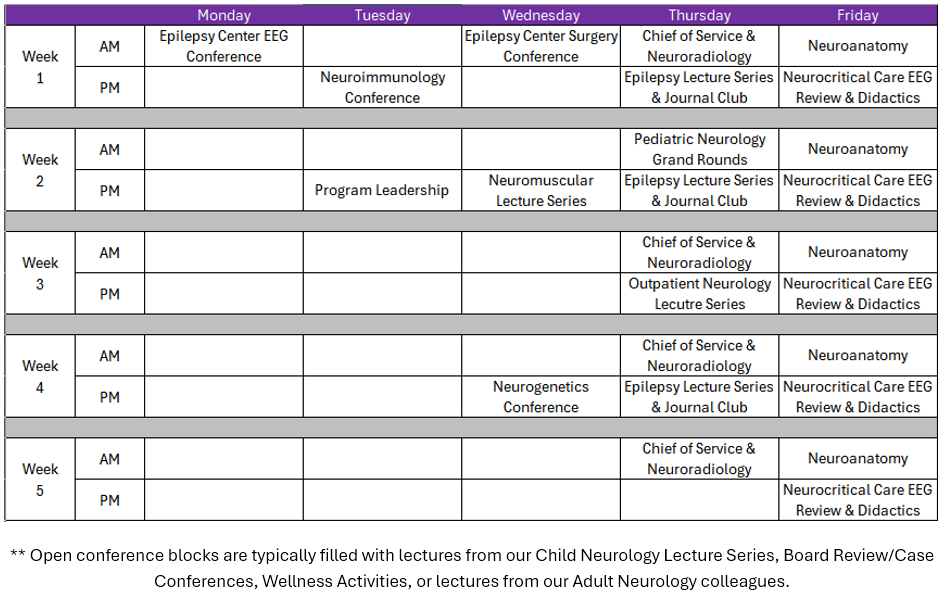
Conferences
Division Conferences:
- “Chief of Service” Conference – Child Neurology residents present cases from the current inpatient services focusing on neuro-anatomic localization, differential diagnosis, and interesting points they’ve learned from patient care, systems-management, or medical literature related to each case.
- Child Neurology Lecture Series – Series of formal didactic lectures for trainees on specific neurology topics based on ACGME and ABPN educational curriculums. This includes topics related to General Neurology outpatient care, headaches, seizures/epilepsy, neuromuscular disorders, movement disorders, child psychiatry, neuropalliative care, ethics, and much more!
- Epilepsy Center EEG Conference – Review of weekly EMU EEGs and interesting clinical cases with Epilepsy faculty and fellows.
- Epilepsy Lecture Series – Coordinated didactic lectures, EEG review, and journal club for child neurology residents and epilepsy fellows.
- Epilepsy Center Radiology Rounds/Surgery Conference – Review and discussion of complex epilepsy patients undergoing evaluations and planning for epilepsy surgery for the management of intractable seizures. May include review of neuroimaging (MRI, functional MRI, SPECT Scans) and EEG data.
- Pediatric Neurology Grand Rounds – Monthly conference showcasing new academic/research/clinical achievements by our faculty or invited speakers from outside institutions.
- Neurocritical Care ICU EEG & Didactic Case Conference – Weekly conference lead by NCC faculty, includes review of recent ICU EEGs, journal club, and standardized didactics on key neurocritical care topics.
- Neurogenetics Conference – Monthly conference run by our neurogenetics specialists and neurogenetics counselors, education on core topics in genetic testing in medical practice as well as case-based learning.
- Neuroimmunology Conference – Monthly clinical case conference focused on reviewing interesting neuroimmunology cases, research updates in the field, and standard diagnostic and treatment practices in the field.
- Neuroradiology Conference – Twice-a-month conference coordinated with neurology and neuroradiology, interesting neuroimaging from recent patients are reviewed for educational or patient care purposes.
Hospital Conferences:
- Adult Neurology Grand Rounds – Weekly conferences coordinated by our colleagues in the Ken & Ruth Davee Department of Neurology (NMH) includes presentations by NM/Lurie trainees, faculty, researchers as well as invited outside speakers.
- Brain Tumor Board – Clinical case review with providers from neuro-oncology, radiology, neurosurgery, radiation oncology, neurology, and pathology. There are equivalent conferences at both Lurie and McGaw that our trainees and providers attend.
- Lurie Clinical Outcomes Review – Formal, hospital-wide presentation of two to four cases with case management, morbidity, hospital systems, medical utilization, cost effectiveness and ethics discussed.
- Pediatrics Firm Rounds Conference – Weekly case-based discussion with involvement of multiple medical services and providers from across the hospital.
- Pediatrics Grand Rounds – Rotating slate of clinical and research oriented topics presented by Lurie pediatrics faculty and invited speakers.
- Schwartz Rounds – Quarterly rounds focused on a topic or case study relevant to the everyday experiences of the workforce, exploring the human dimensions of care for healthcare professionals. Schwartz rounds are intended to create a safe environment for authentic sharing and reflection where the feelings and emotional experiences of staff are supported and validated.
- Vascular Neurology/Stroke Conference – Weekly conference coordinated by our adult neurovascular colleagues to review interesting neurovascular cases. Our pediatric Neurocritical Care team will periodically present interesting cases from our pediatric patients.
Research
All trainees have the opportunity to select a research mentor depending on their area of interest. Research mentors can certainly be found amongst the faculty in our own division, including with those on our Neuromuscular Team engaged in natural history studies and clinical trials, those in our Epilepsy Division who continue to push for improvements in understanding complex seizure disorders and enhancing seizure management, or those in our division pursuing important work in advocacy, medical education, genetics, and global health research. We also have rich connections with researchers in both biomedical and clinical research throughout the Northwestern University system. Residents may choose to implement an independent research project or participate in a faculty member’s research project. We also support trainee participation in our PSTP Program or the UE5 NIH NINDS Research Education Program (formerly R25).
Clinical Experience
Our residents participate in a wide range of inpatient and outpatient rotations during their three years of child neurology training.
Inpatient Experience:
There are three unique inpatient neurology services at Lurie Children’s Hospital: Primary Neurology & Epilepsy Service, Neurology & Epilepsy Consult Service, and Neurocritical Care Consult Team. There is a child neurology resident assigned to each of these services throughout the year. They are an integral part of the team and collaborate closely with the service attending and interprofessional team to guide patient care. These teams can include working with medical students, pediatrics residents, rotating adult neurology residents, and advanced practice providers. Each team functions autonomously and has a separate specialized attending to maximize learning opportunities.
- The Primary Neurology & Epilepsy Service cares for patients with neurologic issues as their primary reason for being admitted to the hospital, such as new onset seizures, myasthenia gravis, multiple sclerosis, and status migrainosus.
- The Neurology & Epilepsy Consult Service manages inpatient and emergency department consults for patients with neurologic symptoms or diagnoses.
- The Neurocritical Care Team provides consultation services in our pediatric intensive care unit (PICU), cardiac intensive care unit (CICU), and neonatal intensive care unit (NICU).
Resident education in the outpatient setting takes two forms: 1) resident continuity clinic and 2) outpatient clinic rotations.
- Resident Continuity Clinic takes place every Monday and Wednesday afternoon. Each resident is assigned to be in one of these clinics consistently throughout the year. There are two faculty attendings who supervise each clinic in-person, and they are there solely for care coordination and education. These attending do not have their own patients to see as well during the afternoon session. Patients are assigned to individual residents rather than being "pooled", and residents have primary responsibility for their patient’s longitudinal care. Residents see patients from all socioeconomic backgrounds, with a wide variety of presenting complaints, and different levels of complexity. The type of patients scheduled in continuity clinic varies each week:
- 1st week of the month – Epilepsy
- 2nd week of the month – General neurology
- 3rd week of the month – ICU follow up
- 4th/5th week of the month – General neurology
- Outpatient clinic rotations occur in both pediatric and adult neurology clinics. Our trainees can rotate through a wide variety of clinics during these outpatient rotations and are able to tailor these rotations to their evolving clinical and career interests. While in clinic, they collaborate with the primary neurology attending who follows the patients while also fostering their own abilities to autonomously interview patients, complete physical exams, and develop appropriate care plans.
Requirements & Eligibility
Successful candidates will have an MD or DO degree by the start of the training program. In addition, they must meet the ACGME requirements to begin a child neurology training program. Applicants must meet eligibility requirements for a temporary Illinois medical license
Additional Links:
Application Process
Applications for the categorical (5-year) child neurology program are accepted via ERAS through Dec. 31. Applicants to the categorical child neurology program do not need to apply separately to the pediatrics residency program. Pediatrics residency interviews and child neurology interviews are held on separate days that can be coordinated through the ERAS/Thalamus system. Applications should meet ERAS requirements and contain at least a dean’s letter, medical school transcript, USMLE/COMLEX scores, personal statement, and at least three letters of recommendations. At least one letter ideally should be from a neurologist or child neurologist, if possible, though we appreciate detailed and thoughtful letters from any other medical professionals, research supervisors, or mentors as well.
Advocacy
Discover the many ways our faculty are impacting children's health beyond the hospital.
Global Health
Each year, as many as 20 third-year pediatric residents travel to Bugando Medical Center in Mwanza, Tanzania, to participate in an educational initiative that provides exposure to the management of complex pediatric diseases in a low-resource setting. Learn more about this extraordinary opportunity.
Why Northwestern?
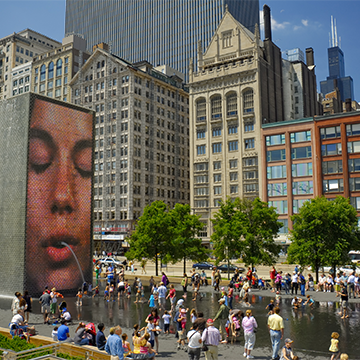
Residency training through Lurie Children’s Hospital and McGaw Medical Center of Northwestern University provides diverse and challenging clinical experiences and world-class education located in the heart of the beautiful city of Chicago. Please see additional links below for more information:
Watch Our Videos
Video Gallery
Meet Dr. Leon Epstein, Head of the Division of Neurology at Lurie Children's
Dr. Leon Epstein is the head of the Division of Neurology at Ann & Robert H. Lurie Children's Hospital of Chicago. The division is ranked #4 in the nation by US News & World Report. His special interests include viral disorders on the nervous system and migraine headaches.
Meet Dr. Nancy Kuntz, Neurologist at Lurie Children's
Dr. Nancy Kuntz is a physician in the Division of Neurology at Ann & Robert H. Lurie Children's Hospital of Chicago. In addition, she serves as medical director of the Mazza Foundation Neuromuscular Program, and director of the Muscular Dystrophy Association Clinic. Her special interests include neuromuscular disorders in children with special emphasis on neuroimmunology and autonomic disorders.
Meet Priyamvada Tatachar, MD, Neurologist at Lurie Children's
Priyamvada Tatachar, MD, is a Neurologist at Ann & Robert H. Lurie Children's Hospital of Chicago. Her special interests include neurology, tuberous sclerosis, and epilepsy.
Meet Dr. Linda Laux, Pediatric Epileptologist, Lurie Children's
Dr. Linda Laux is a pediatric epileptologist at Ann & Robert H. Lurie Children's Hospital of Chicago. Lurie Children's Epilepsy Center is part of the Division of Neurology, ranked 5th in the nation for child neurology and neurosurgery by U.S.News & World Report.
Fellowship Life
Contact Us
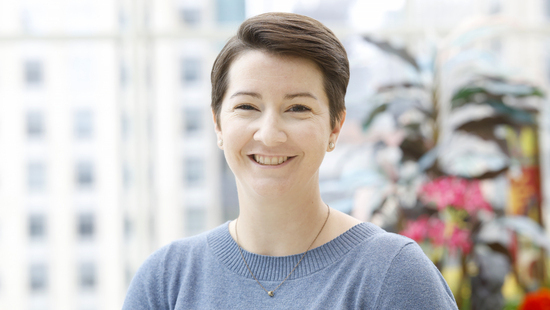

Joanna Blackburn, MD
Associate Program Director, Child Neurology Residency Program
Neurology
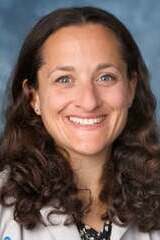
Abigail Schwaede, MD
Associate Program Director, Child Neurology Residency Program
Neurology
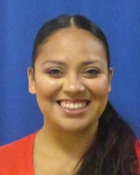
Zulaika Guzman
Medical Education Coordinator
Neurology
312-227-4455
More Information
Further program details, including the housestaff manual and a sample training contract, are available on the McGaw Medical Center of Northwestern University site.
Physician-Scientist Training & Resources
We offer a wide range of resources, mentorship opportunities and formal training programs to help our residents and fellows excel as physician-scientists. Explore all of the resources and hear from housestaff who are making research a major part of their career development plans.